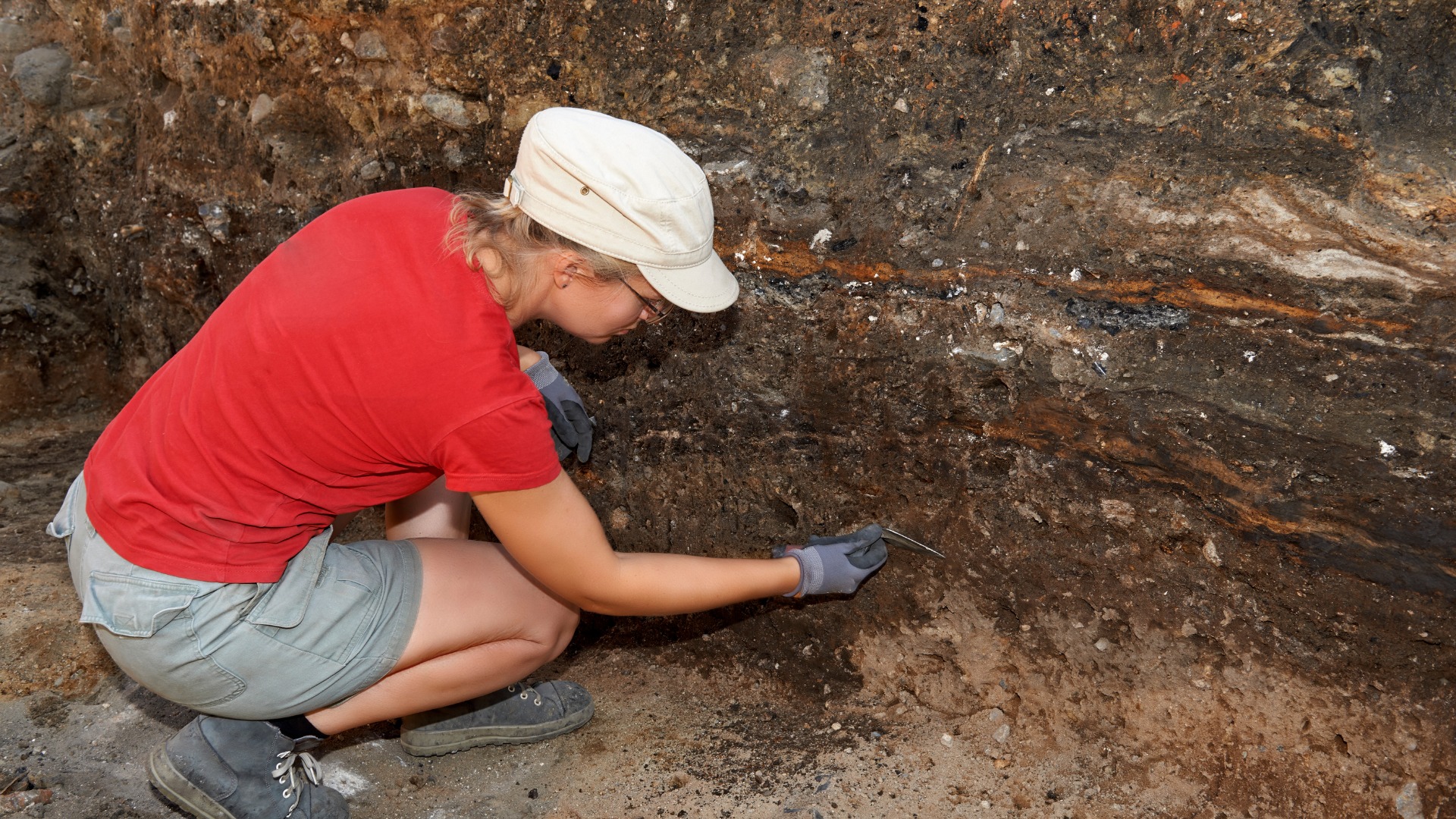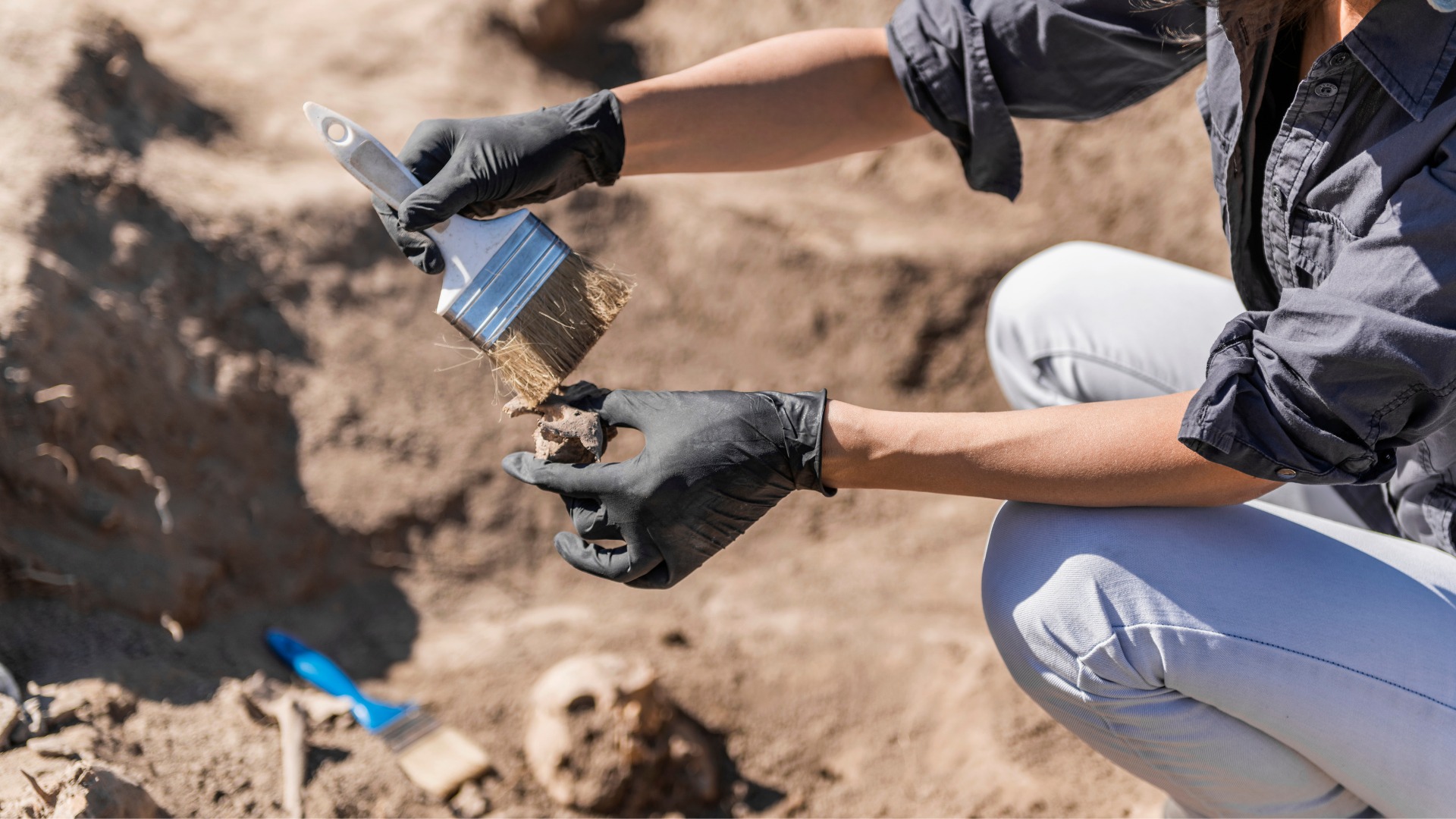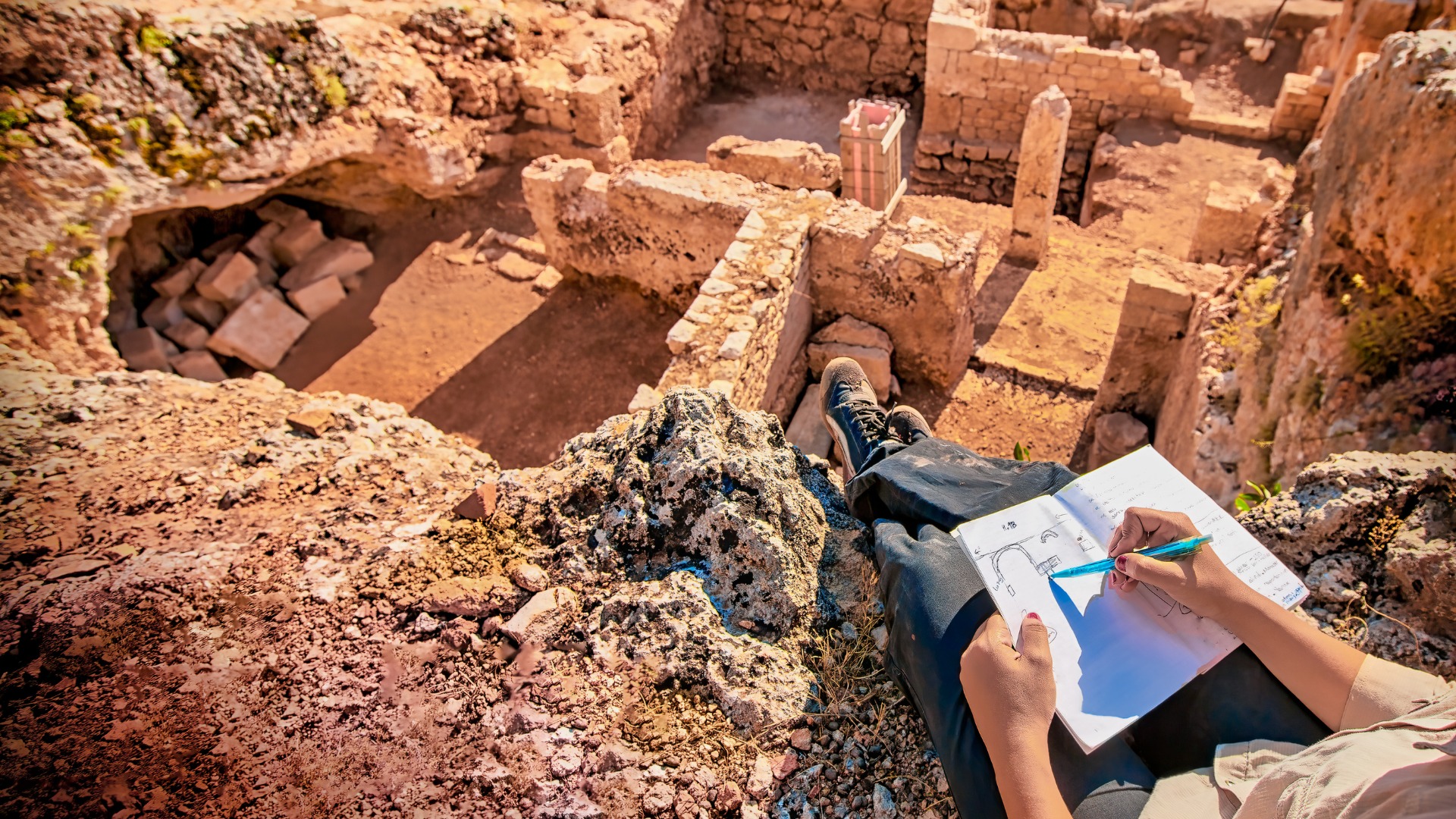

We have a database of over 11,000 colleges all over India.
Connect with us to find your perfect fit!
Blog
03 December,2021 | By Brainwonders

Archeology is the study of artefacts in order to get a better understanding of previous cultures. An archaeologist may work on anything from recent decades to ancient civilizations.
Archeologists have been responsible for some of the most significant discoveries in human history, and a career as an archaeologist allows you to be a part of such discoveries.
This article will explain what an archaeologist does, how much they make, and how to become one.
This Blog Includes:
The majority of people's knowledge of archaeology is derived from television episodes such as Indiana Jones. Unfortunately, archaeology is devoid of Indiana Jones-style adventure. Although archaeologists get to visit interesting locales, what they are truly seeking is information rather than wealth.
Archaeology is one of the most important sources for uncovering the history and piecing together the people and civilizations that have shaped us into who we are today. It is one of the four sub-fields of anthropology and involves the scientific study of the human past.
Archaeologists investigate the origins, development, and behaviour of humans and their cultures in the past and now. They study people's cultures, languages, behaviours, archaeological remnants, and physical features from all around the world. They pose inquiries and construct hypotheses.

Archaeologists employ scientific sample procedures to determine where they should dig on a site. They observe, document, categorise, and evaluate their findings before sharing them with other scientists and the general public.
Archaeologists investigate the methods of prehistoric communities around the world, using knowledge from the humanities, social, physical, and biological disciplines. They also investigate diverse civilizations' habits, values, and social trends.
The archaeologist divides history into eight distinct time eras. Many archaeologists have dedicated their life to studying only one type of archaeology:
Many archaeologists work using sophisticated tools and technologies. Although materials vary by expertise, digging tools, laboratory equipment, statistics and database software, and geographic information systems are frequently used (GIS).
Recommended Read: How to become an Aircraft Maintenance Engineer


Nearly all archaeological jobs need a bachelor's degree in anthropology, history, or linguistics. Learn how to analyse historical relics and how to excavate them throughout your education properly. This education shows that you can be trusted to participate in an archaeological project, where mistakes could lead to the loss of historical knowledge and artefacts.
Archaeology theory doesn't ensure you'll appreciate the physical part of the profession. Students should engage in an open excavation through an internship, fellowship, or similar arrangement. This gives you supervised experience and lets you examine your fit for the profession to make sure it's the best decision.
Most archaeologists prefer to get a master's or PhD before entering the profession. Professional performance improves with advanced degrees because they give a deeper grasp of the area, improving professional performance. Higher degrees are typically necessary for further career progression, making them a soft requirement.
Archaeology is a competitive field, so any advantage you have is helpful. Joining a national or international organisation shows a prospective employer your devotion and worth.
A formal CV shows hiring managers your finest qualities. Your CV may be the only item seen for competitive employment before the first cut. Focus on archaeology-related tasks when listing previous jobs. Teaching assistant experience is more valuable for an archaeology professor's application than digging experience.
Recommended Read: Air Traffic Controllers and 8 secrets you did not know about them
Although some archaeologists work in offices, the majority work in laboratories or the field. Fieldwork sometimes necessitates travel. During regular business hours, the majority work full-time.
Archaeologists collaborate at various levels with research organisations, colleges and universities, museums, consulting businesses, private corporations, and government agencies. They can also work for companies that specialise in cultural resource management (CRM). Archaeologists frequently conduct fieldwork, either in their own country or in other countries. This could include studying foreign languages, living in rural areas, or inspecting and excavating archaeological sites. This occupation frequently necessitates long periods of travel and may need labour in distant regions. Archaeologists may work in difficult conditions and require hard physical exertion.
Archaeologists usually work full-time jobs. In the United States, an archaeologist makes an average of $64,982 per year.
Archeologists can make anywhere from $21,000 to $132,000 per year, depending on where they work, what kind of work they do, and how much experience they have.
If you have a knack for History and everything dainty, archaeology might be exactly what you enjoy. To get a deeper understanding of what you like, where you could excel, contact Brainwonders and get your psychometric assessments done. You could also opt for Career Counselling as we have on board with us the best counsellors in the industry.
Visit Page: GET THE RIGHT GUIDANCE TO LEAP THROUGH YOUR CAREER
Frequently asked questions
1. What qualifications do I need to become an archaeologist?
Answer: To become an archaeologist, you should have a bachelor's or master's degree in anthropology, archaeology, history, or a related field. Some employers may also require graduate-level coursework in a particular area of study. Additionally, it is beneficial to have experience in data analysis, processing and interpretation, report writing, and fieldwork.
2. How much does an archaeologist typically make?
Answer: The median salary for archaeologists is around $62,000 per year. However, salaries can vary significantly depending on location, level of experience, and other factors.
3. What are the primary responsibilities of an archaeologist?
Answer: As an archaeologist, your primary responsibilities will include the excavation and study of artefacts from archaeological sites. You may be responsible for conducting research, developing theories and hypotheses, drawing conclusions from collected evidence, organizing and cataloguing finds, creating reports, and presenting findings to colleagues or the public.
4. What type of environment do archaeologists typically work in?
Answer: Archaeologists typically work in both indoor and outdoor settings. Indoor work environments include offices, laboratories, and other research facilities, while outdoor fieldwork could involve excavating and surveying sites located in remote areas.
5. What are the typical hours for an archaeologist?
Answer: Archaeologists generally work full-time hours but may be required to work longer hours or flexible schedules depending on the project requirements. You may also be required to travel to different locations as part of your job.
Fill the form to know how!